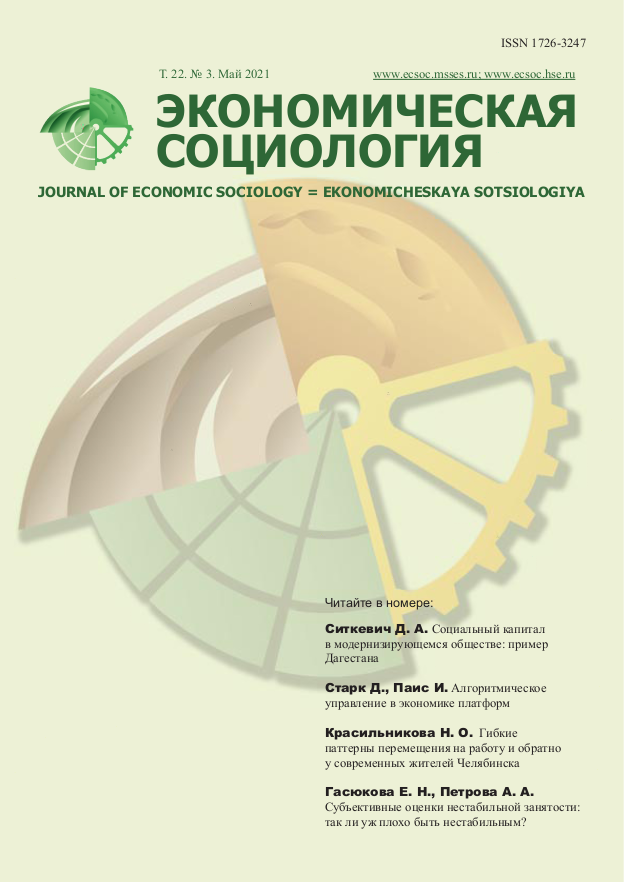Effects of Modernization on Social Capital: Evidence from Dagestan
Abstract
The paper scrutinizes the differences between the traditional and modernistic social groups of Dagestan, Russia—a region in the south of Russia that is only now undergoing the process of modernization. As an important factor in economic development in developed countries, social capital and trust often have a negative impact on the level of well-being in traditional communities. The research, based on a sociological survey of residents of the Republic of Dagestan, shows that this pattern is due to the fact that in traditional society, the radius of trust (which is one of the most important components of social capital) extends only to the immediate environment. This is why social capital in such communities produces lower returns. Moreover, using variables associated with the process of breaking traditional norms (residence and birth in the city, modernist religious beliefs, importance of free time, and desire to educate children in self-expression values and foster values of obedience), this article argues that the modernization process leads to the destruction of closed social capital, expressed in the decline of trust in relatives, friends, colleagues, neighbors, and representatives of the same nationality. At the same time, the transformation of traditional norms has a different effect on open social capital—having more modernistic values is positively linked to generalized trust, while being a part of modernistic social groups demonstrates a negative link. The results enable us to conclude that the high level of social capital recorded in other studies in the North Caucasus (and in Dagestan, in particular) is actually associated with a high level of trust in the surrounding environment and is not as productive as in other regions.













